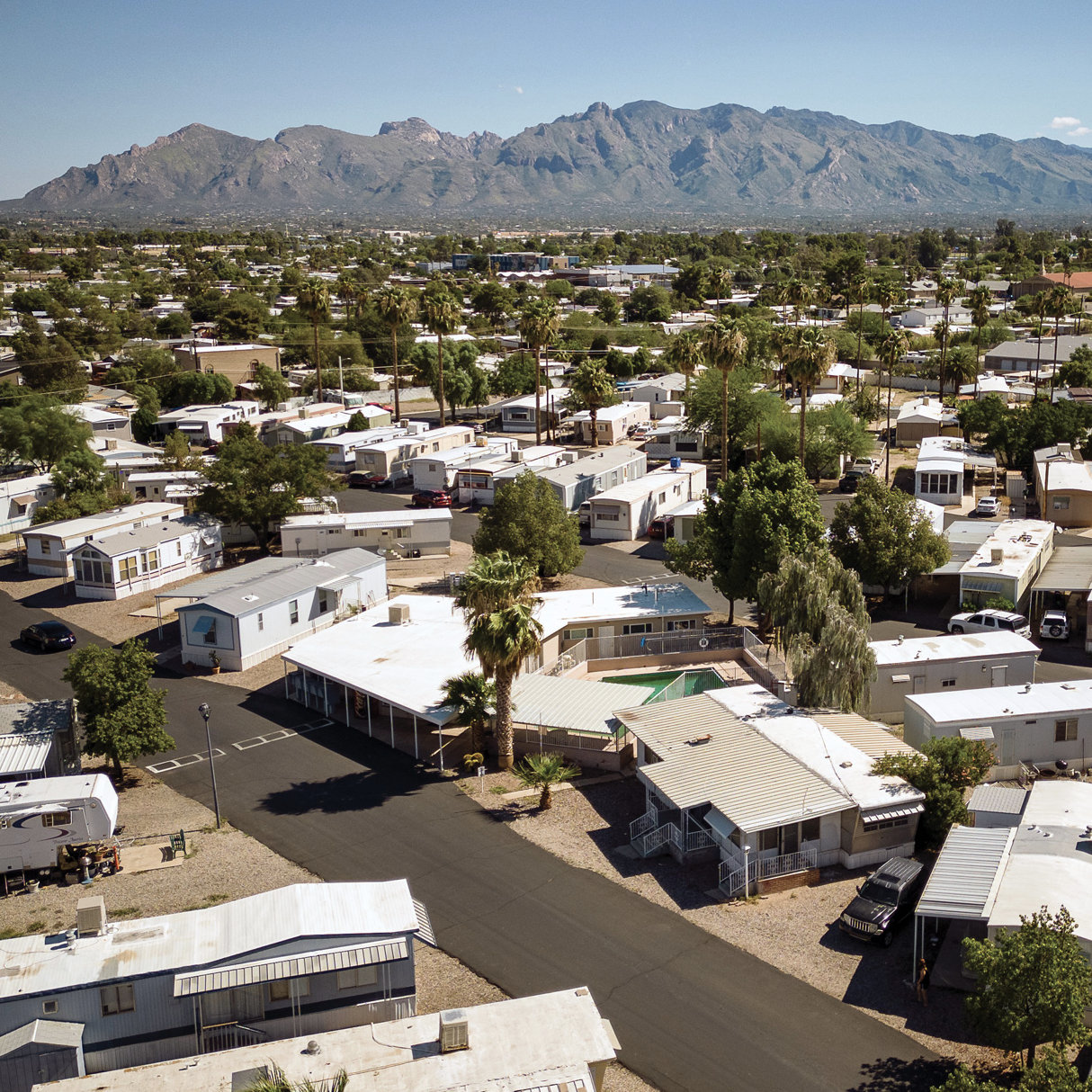“You’re Living in a Tin Can”: Arizona’s Mobile Home Residents are Far More Likely to Die from Excessive Heat
High Country News / Arizona Luminaria
28 September 2022
“They end up using homespun strategies to cope: covering windows with blankets on the inside or reflective foil on the outside, and building awnings and enclosing porch areas so that less sunlight can get in. Esmeralda Pelayo, who lives in Tucson’s Weststar Park, said her family spent the summer staying in the one room of their home that has an AC window unit, misting each other with a spray bottle to stay cool.”
“Estás Viviendo en una Lata”: En Arizona, los Residentes de Casas Rodantes son más Propensos a Morir de Calor Excesivo
High Country News / Arizona Luminaria
28 de septiembre 2022
“Terminan usando remedios improvisados para sobrellevar la situación: cubrir las ventanas con cobijas por dentro o colocar aluminio reflectivo por fuera, y construir toldos y encerrar sus áreas de portal para que penetre menos la luz del sol. Esmeralda Pelayo, quien vive en el Weststar Park de Tucson, dijo que su familia pasó gran parte del verano en una misma habitación de su casa que tiene una unidad de aire acondicionado de ventana, rociándose uno al otro con agua de una botella para mantenerse frescos.”
High Country News / Arizona Luminaria
28 September 2022
“They end up using homespun strategies to cope: covering windows with blankets on the inside or reflective foil on the outside, and building awnings and enclosing porch areas so that less sunlight can get in. Esmeralda Pelayo, who lives in Tucson’s Weststar Park, said her family spent the summer staying in the one room of their home that has an AC window unit, misting each other with a spray bottle to stay cool.”
“Estás Viviendo en una Lata”: En Arizona, los Residentes de Casas Rodantes son más Propensos a Morir de Calor Excesivo
High Country News / Arizona Luminaria
28 de septiembre 2022
“Terminan usando remedios improvisados para sobrellevar la situación: cubrir las ventanas con cobijas por dentro o colocar aluminio reflectivo por fuera, y construir toldos y encerrar sus áreas de portal para que penetre menos la luz del sol. Esmeralda Pelayo, quien vive en el Weststar Park de Tucson, dijo que su familia pasó gran parte del verano en una misma habitación de su casa que tiene una unidad de aire acondicionado de ventana, rociándose uno al otro con agua de una botella para mantenerse frescos.”

photo: Eliseu Cavalcante/High Country News
cover photo: Bear Guerrra/High Country News
cover photo: Bear Guerrra/High Country News

